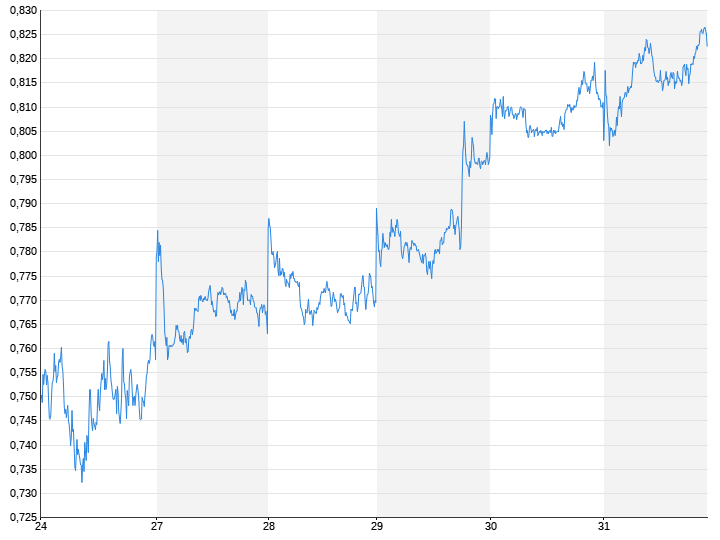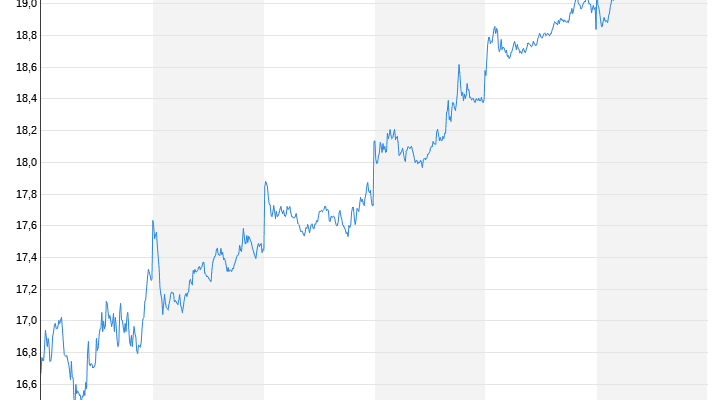Is the deal with UBS smart?
“No one knows what risks are hidden in Credit Suisse”
4/2/2023 2:43 p.m
The forced merger of the “super tanker” Credit Suisse and UBS raises new concerns. The “bailout should have been avoided,” says banking expert Volker Brühl. Private investors should keep their hands off the “gambling papers”.
Mr Brühl, was the takeover of Credit Suisse a smart deal for UBS?
Volker Brühl: No, an orderly liquidation of Credit Suisse would have made much more sense. This is how the healthy UBS is infected by Credit Suisse, which has been ailing for years and nobody knows what risks it still harbors.
But the Swiss authorities wanted to ensure stability in this way. Didn’t that work?
I doubt it. I can understand the emergency situation the Swiss found themselves in. I also understand that they wanted to bring about a solution over the weekend. But UBS was actually pushed to make the takeover, which is neither in the interests of the shareholders nor the employees and customers. The price reactions when the takeover was announced illustrate the uncertainty of investors.
What does the deal mean for UBS?
UBS is now once again an excellently positioned bank. The successful transformation is jeopardized by the takeover of Credit Suisse. There is significant overlap between the two houses. The merger is expected to result in lost revenue as customers who have been with both banks will reconsider their customer relationships. This will result in high integration costs combined with the loss of thousands of jobs. The renovation will take at least five to ten years. Merging the IT alone is a Herculean task. Whether this solution is permanent – I put a question mark behind it. We saw at Commerzbank and Dresdner Bank that a takeover can take years, even for smaller banks.
Wouldn’t a Credit Suisse resolution have been chaotic?
The Swiss authorities say so. I see it differently. One should have avoided such a bailout – that is what we are talking about here. The first major imbalance since the last banking crisis means that Switzerland is throwing all its good intentions overboard. So too big to fail is still a reality. If this situation had arisen in the EU, I am convinced that Credit Suisse would have been wound up in an orderly manner. We now have the set of tools in the form of the “Bank Recovery and Resolution Directive” and the uniform resolution mechanism via the “SRM Regulation”.
These regulations do not apply in Switzerland. But you have similar tools. The deposits of private investors should have been guaranteed and the maintenance of liquidity by the Swiss central bank should also have been guaranteed in this case. Then you could have dismantled the bank and sold the valuable parts to different interested parties. This would certainly not have happened without a bail-in – i.e. the participation of the creditors in the restructuring of Credit Suisse. But in an orderly, multi-year process, you can do it in such a way that other banks don’t get into trouble. Even with the bankruptcy of Lehman Brothers, which was processed in the USA in a classic Chapter 11 bankruptcy proceeding, the secured creditors got their money back in full, the unsecured creditors at least more than 40 percent, which is a very good rate.
Because you mentioned Lehman: You were an investment banker yourself during the financial crisis of 2007/2008 and witnessed the collapse of the financial system. Did the recent banking turmoil remind you of that time?
Yes and no. The trigger at the time was different, namely the real estate crisis in the USA. In 2008, bankers quickly realized that the rotten subprime deals in the US would have global repercussions. On the other hand, I consider the difficulties of the Silicon Valley Bank to be a local problem. I freely admit that working at Credit Suisse made me think back to that time and Lehman, although the reasons are more emotional than rational.
In what way?
Lehman Bank was one of the big players in the securitization business. It was clear that the bankruptcy would have global repercussions and that some banks would not survive. At Credit Suisse, the problems are homegrown. It has been a restructuring case for years and has not managed to turn it around. Therefore, it is taken over by UBS.
Will German banks benefit from the merger?
I believe that it is an opportunity for the German banks. The big three – Deutsche Bank, Commerzbank, DZ Bank – and the Landesbanken can thus gain market share in German-speaking countries and thus also in Switzerland. New customer groups can be both wealthy private customers and corporate customers.
That sounds optimistic…
I think that’s realistic. Confidence in this huge new financial institution formed by UBS and Credit Suisse has yet to develop. That will cost UBS a lot of momentum that others can use for themselves.
Can the size of the emerging giant bank become a problem?
That is the greatest risk of this merger. A supertanker emerges that can destabilize the global financial system in the event of a collapse. In addition, competition in Switzerland will be massively restricted. This is not good news for either the financial center or the Swiss economy.
Do players on the capital markets share this concern? Prices are still volatile…
The volatile stock markets are heavily influenced by speculators and driven by hedge funds. But that would have continued even if a settlement had been announced. As a company and investor, you simply have to endure such phases. These fluctuations gradually decrease again.
When will the stock markets calm down again?

It still takes some time. We are now entering a phase of enormous uncertainty because the takeover has been announced but not yet completed. Everything is in limbo because the antitrust authorities of several countries must first approve the merger. In theory, the deal can still fail, but I don’t think so. Those involved assume that the merger will be completed by the end of the year. Credit Suisse is up in the air for that long. Stock price volatility will remain very high.
Can private investors now buy bank shares cheaply or are they threatened with losses?
Both UBS and Credit Suisse shares will be the subject of speculation. These are gambling papers. Private investors should keep their hands off it. Other bank stocks are likely to pick themselves up again in the coming weeks, meaning that valuations will be realistic again.
Should there be stricter rules for banks?
We have now arrived at the Basel IV regulations. You have to look in detail at what went wrong at Credit Suisse. The findings will certainly lead to further teachings. But we will never have 100% security. Nevertheless, I believe that if Credit Swiss had been based in the European Union and had been under the supervision of the ECB, it would not have happened in this form. Three or four years ago, a bank in difficulty would have been subject to such massive conditions that it would not have gotten as far as it is now in Switzerland.
Laura Eßlinger spoke to Volker Brühl
The interview first appeared on Capital.de.

